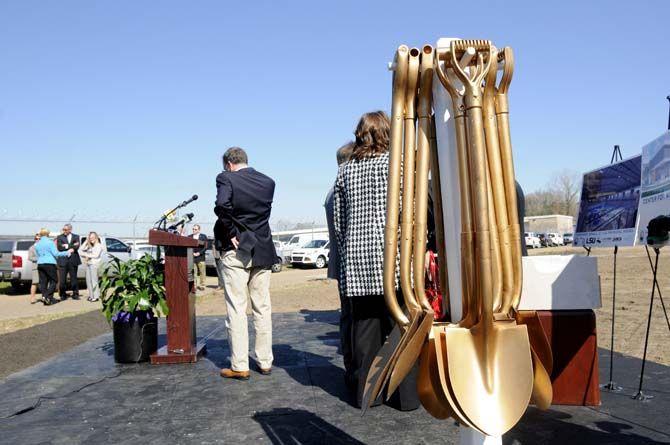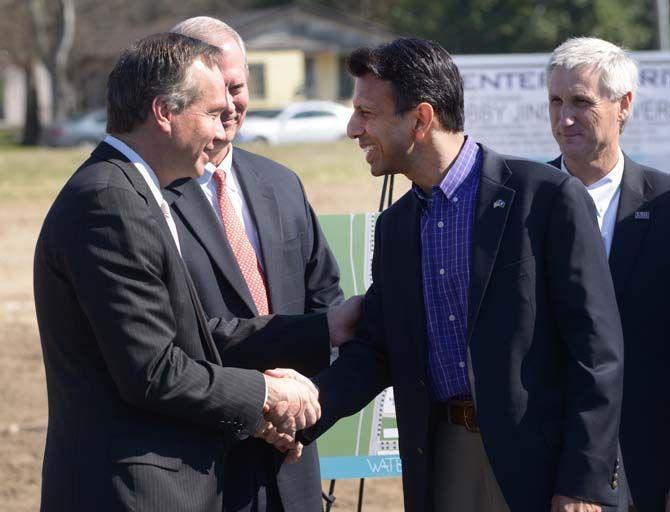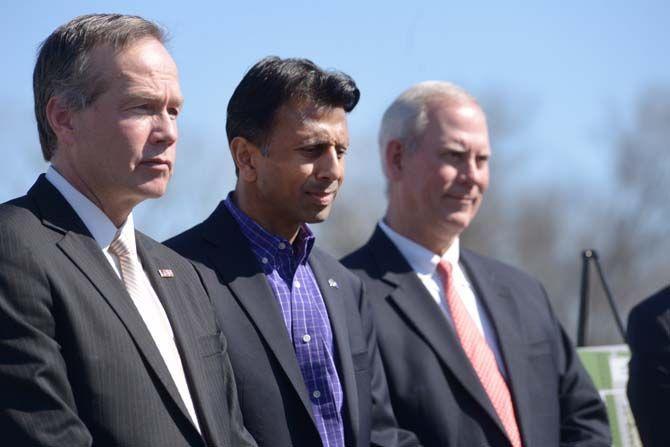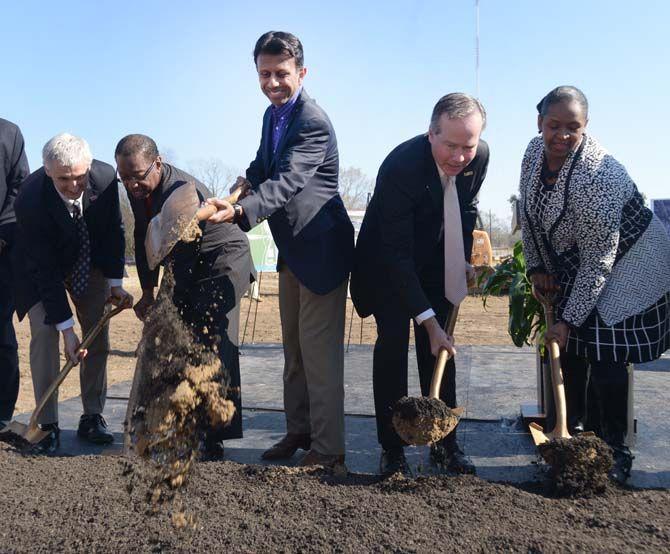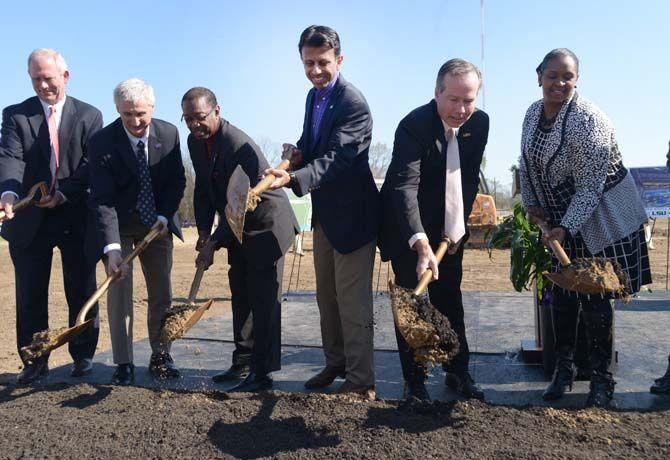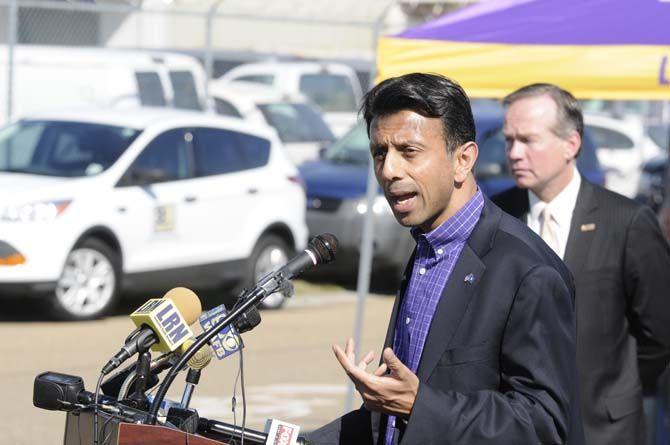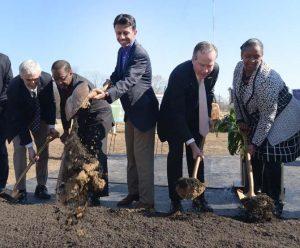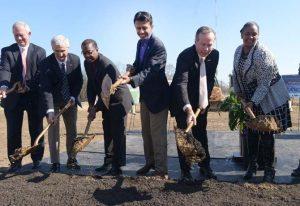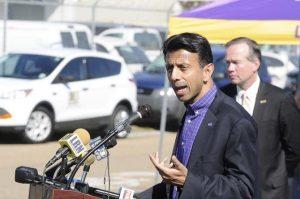Gov. Bobby Jindal, LSU President F. King Alexander, Baton Rouge Mayor-President Kip Holden and representatives from several public and private agencies gathered Wednesday in a sunny field beside the Mississippi riverbank to break ground on the new Center for River Studies.
The center is the first of three buildings to make up The Water Campus. It will house a state-of-the-art model of the Mississippi river for researchers.
The Water Campus is a $45 million, 33-acre development funded through a partnership between the State of Louisiana, the City of Baton Rouge and the Baton Rouge Area Foundation. The center is part of the state’s 2012 Coastal Master Plan and is one of the University’s core research initiatives.
Alexander said researchers from around the world will use the center to work toward solving environmental problems along the globe’s coastlines.
“This is not just what we are doing at LSU,” Alexander said. “There will be international faculty, from the Maldives to the Netherlands, who will be coming together here to solve these coastal problems in unpredictable ways.”
BRAF purchased the plot of land along the levee from the East Baton Rouge Parish Housing Authority and donated it to the University to be used as a research land.
BRAF president John Davies said The Water Campus will become a sort of United Nations of river and coastline research and “the center of the universe in deltaic affairs.”
The University currently houses a center for river research, where a new model of the river is under construction and will be placed in the center.
Civil engineering professor Clint Willson said University researchers are piecing together the more than 200 panels comprising the newest river model — a process which will take more than a year to complete.
“[The old model has] already been dismantled. We took it apart because we are using that building for equipment and things about the new model, so we’re already starting testing,” Willson said.
He said the University is unsure how the current river research facility will be used after the model is moved to the location by the highway.
Executive director of the Office of Facility Services Tony Lombardo said the College of Engineering likely will continue to use the current river research facility in some capacity.
The other buildings to be constructed after the Center for River Studies will house offices for the Coastal Protection and Restoration Authority and a building for the Water Institute of the Gulf, according to a release from the Governor’s Office.
After officials from the Water Institute, BRAF, Alexander and the CPRA delivered opening remarks, Jindal was asked about potential budget cuts for the upcoming fiscal year.
Jindal said he is concerned with the way health care and higher education are generally the first to be cut, and the governor’s office is working to minimize damages and cut expenses in other areas to balance costs.
“We’ve been working on solutions to help protect higher education and healthcare. At the end of the day, we know we will have a balanced budget but will not raise taxes,” Jindal said.
The state budget is set to be released Feb. 27, Jindal said. He reiterated taxes would not be raised. Budget cuts for higher education for the next fiscal year are set to range between $300 and $400 million.
Jindal, Alexander, agency representatives break ground on Water Campus
February 11, 2015
Gov. Bobby Jindal, along with LSU President F. King Alexander and agency representatives, break ground on the new Center for River Studies- the first of three buildings to make up the Water Campus.



